I'M ONE TO TALK
Our Blog Posts will help you reach your full potential in becoming a confident conversationalist. New topics each week.
Sports Conversation Starters for Your Workweek
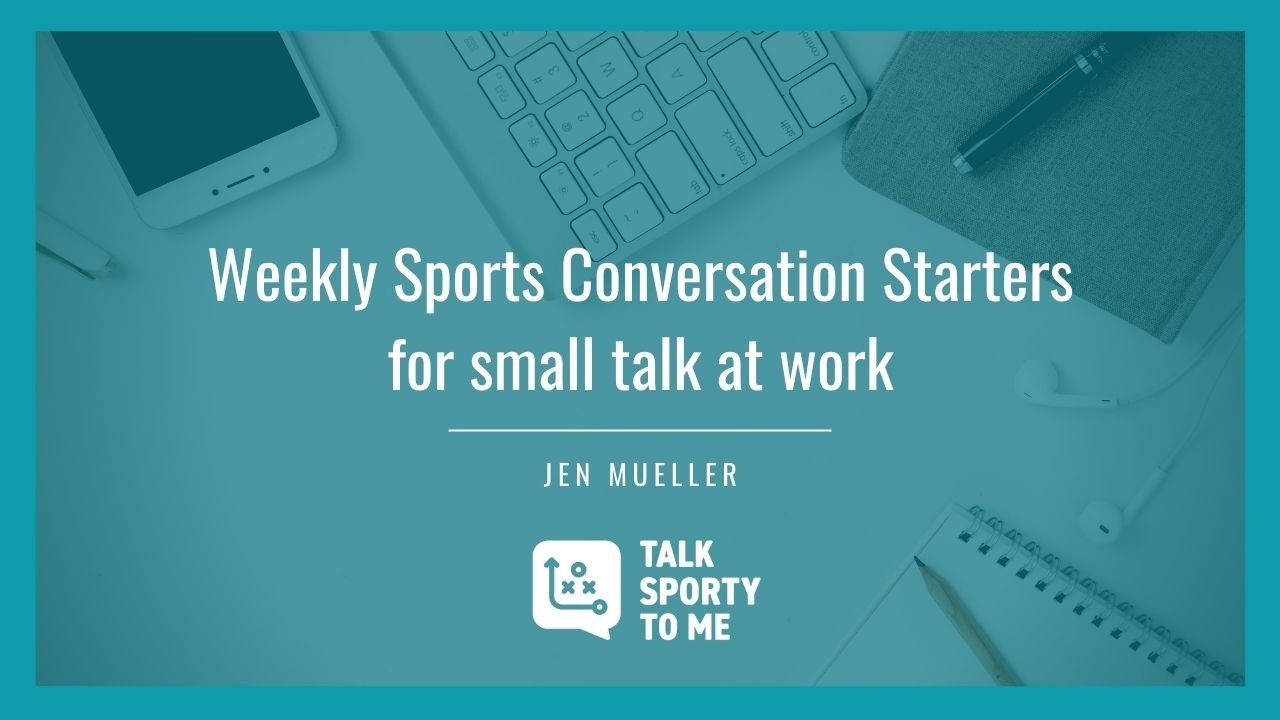
“We see each other as we really are, we break down barriers and form connections.”
This quote stood out to me almost as much as the headline of the article it came from: It’s World Naked Gardening Day and Seattle is the No. 3 city for celebrating it.
It’s certainly one way to break down barriers.
If that feels a bit over the top, I have another suggestion – engage in conversations that go beyond the topic at hand to find out more about the personality, background and makeup of the people you work with. These sports conversations starters can do that.
Or you can show them the gardening article, whichever you prefer.

Learn from a Leader: Collecting Talent vs. Building a Team
The NFL Draft isn't just about building a football team. It's talent evaluation being covered and talked about as a sports event.
Every leader and business owner makes the same types of decisions as NFL general managers. They can also make the same types of mistakes. Here's the biggest one: acquiring talent vs. building a team.
There's one thing that determines whether you are building a team or just acquiring talent: the job description itself.
Former NFL GM Randy Mueller explains why that's key when evaluating talent and identifying the best fit for your team.
Learn from a Leader is a monthly series hosted by Jen Mueller and features CEO's, visionaries, thought leaders and action takers. Join the conversation and the next Learn from a Leader session for free.
Sports Conversation Starters for Your Workweek
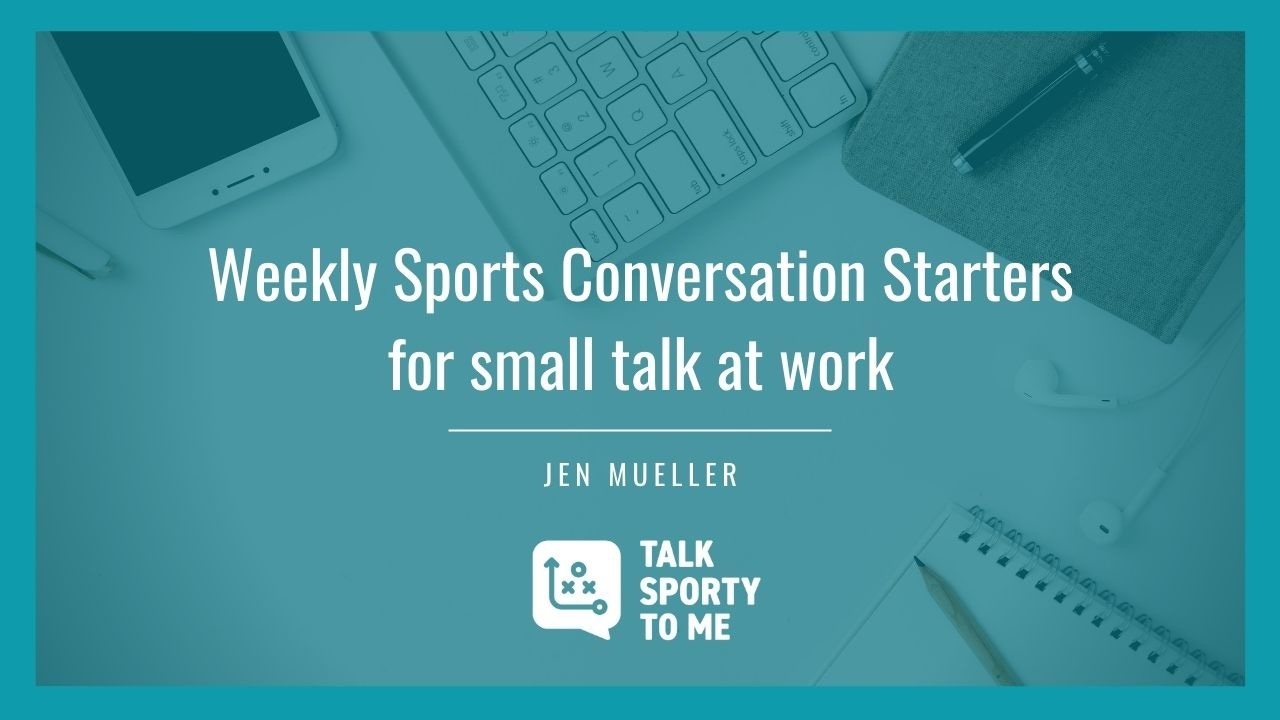
Sports talk tip: The topic you start with isn’t the only one worth talking about. Sports can be a springboard to other conversations and this week the NFL Draft is a great conversation starter in your business meetings. Here’s why – the NFL Draft is about talent evaluation, identifying and addressing talent gaps on a team and onboarding new team members.
You might only have a passing interest in which order the quarterbacks get drafted but there’s a very personal interest in who you have on your team at work, gaps that need to be filled and how you get new team members up to speed in a virtual or hybrid work environment. The NFL Draft is a timely topic to bring up those conversations this week.
Here are a few other sports topics you can use in your small talk:
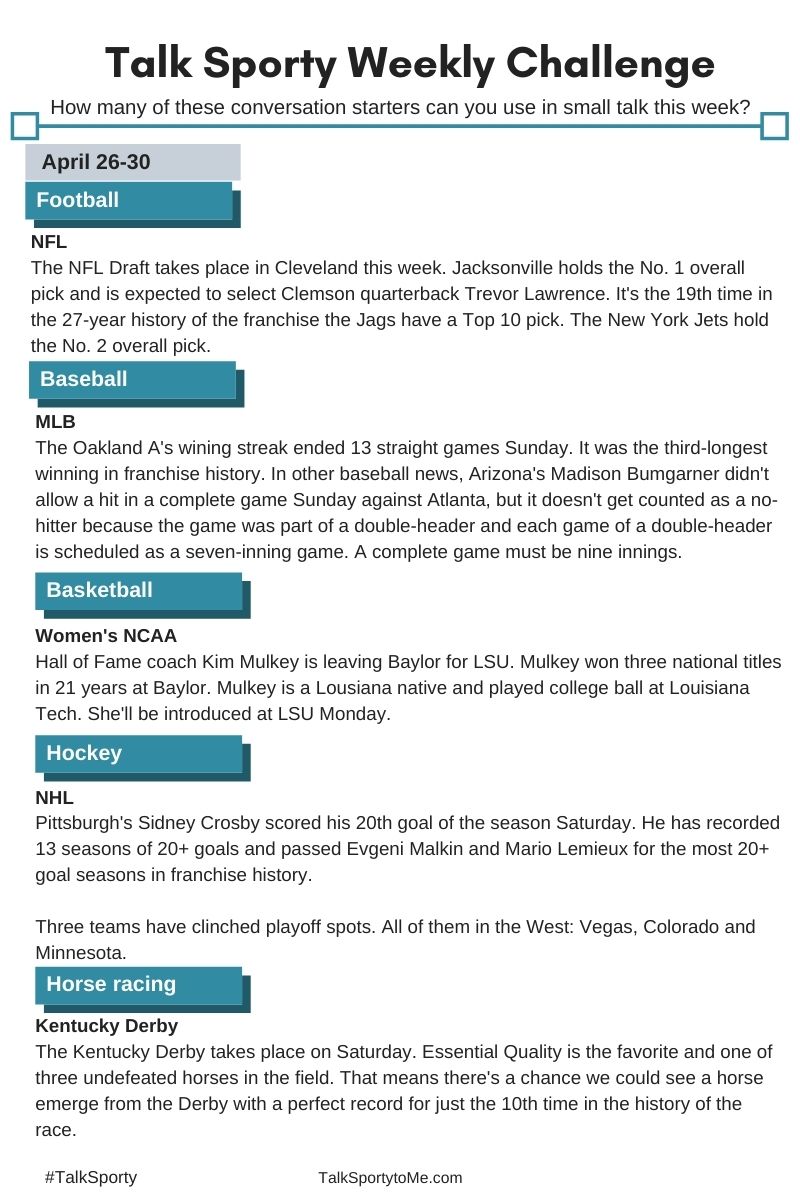
How are you? Struggling. Here's how to communicate your feelings

It was the article in the New York Times that convinced me I should talk about me week. Fridays I generally post an update on my Instagram account that I try to keep upbeat.
I have not been upbeat this week.
I’ve been struggling.
In fact, I admitted this to two different people. I actually typed the words “I’m struggling” and choose to say that instead of “Fine” or “Good” or “Ok” when I was asked, “How are you doing?”
You have heard me talk about this before, and I will keep talking about it because your response to “How are you?” is a critical point in every conversation. The New York Times article I’m referring to hinted at that. If you haven’t seen it just type “languishing” into a search engine. You’ll find the article and you’ll discover that languishing is between depression and well-being on the mental health scale. It describes what a lot of us are feeling these days.
The author suggests that:
“it could give us a socially acceptable response to “How are you?” Imagin...
Talking to People in Real Life: State the obvious, it's uncomfortable!
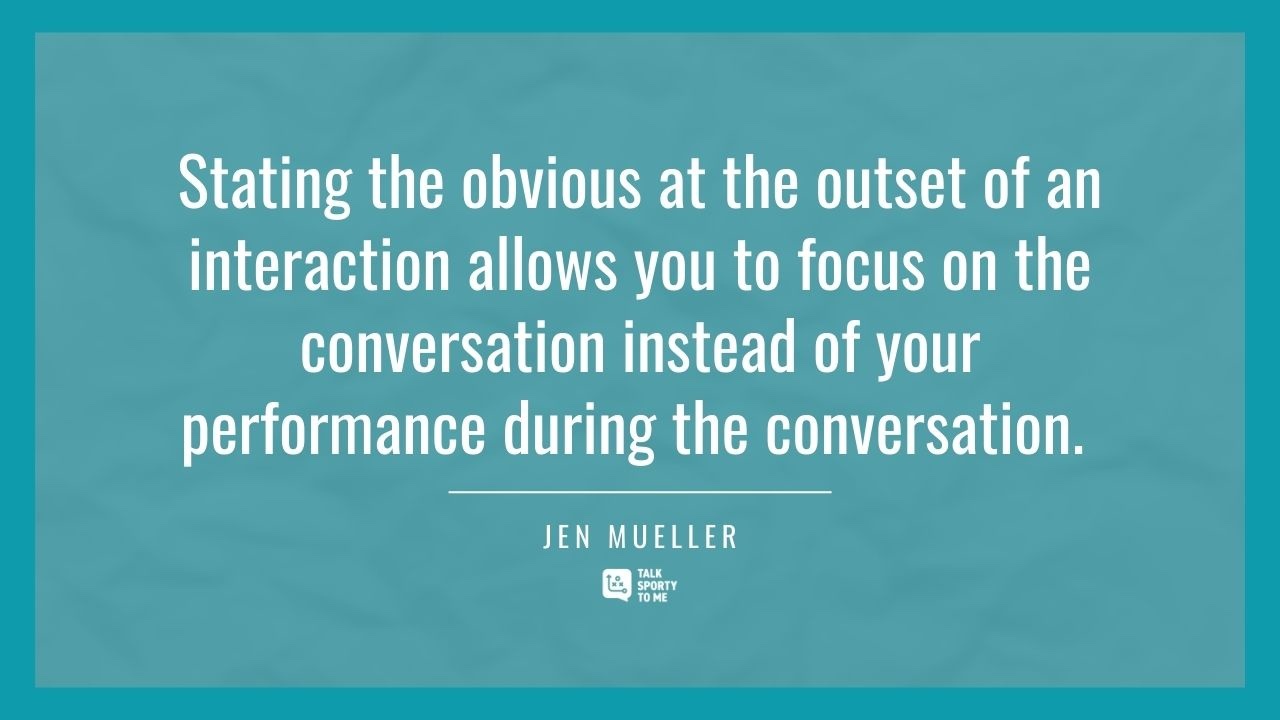
I know there’s a lot of angst and anxiety around returning to work and I know part of that stress comes from the thought of social interactions. Talking to people in real life is something we haven’t done much, if at all, in the last year. In fact we pivoted to the exact opposite. Virtual interactions with a mute button and an option to keep your camera turned off.
It is possible that you’ve been silently hiding for more than a year and now showing up, being seen, being heard and talking to people is a huge overwhelming shift.
And if you’ve had a few awkward encounters already… well, that doesn’t help your confidence or make it any easier to believe that you can do it AND that it’s important you talk to your colleagues again in person. You might prefer to work virtually and stay hidden away but when you work with a team, they might need you to show up an engage in person for the good of the team and its collective goals.
Instead of shying away from conversations because you’re un...
Sports Conversation Starters for Your Workweek
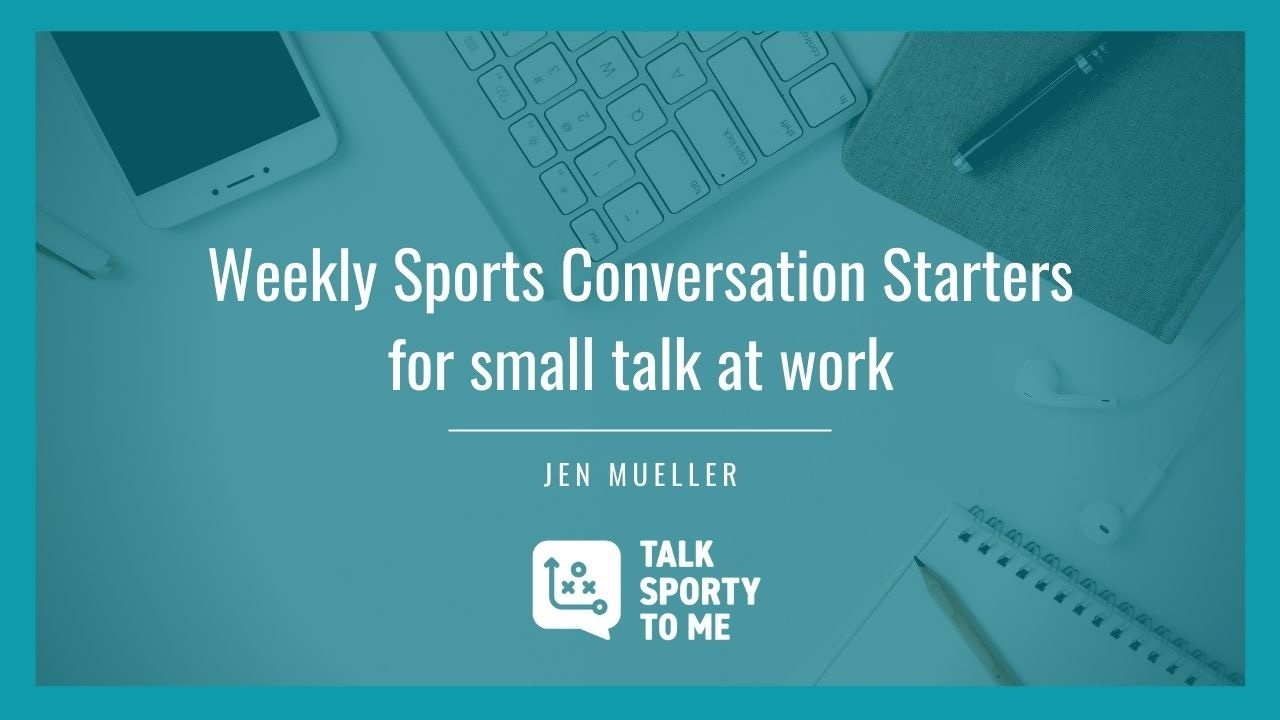
You don’t have to share the same sports interests to have a sports conversation.
Which means you don’t have to predict the fandom of the person you’re talking to before you start the conversation.
If you’re a baseball fan go ahead and ask your colleague if they saw the game last night. Wait for the response. Your colleague will tell you if they are a baseball fan and watched the game, or if they spent time watching golf instead.
Use their response to formulate follow-up questions and guide the conversation. Don’t overthink which one of these sports conversation starters will work this week. Pick one and see where the conversation takes you.

Improve conversations right now by doing this 1 thing

"What's the No. 1 thing I can do to have a better conversation?" The podcast host asked me. "What do you think I'm missing out on?"
It was a great question.
I don't think he was expecting the answer I gave or how practical it is: Give a better answer to the question, "How are you?"
He looked at me, a little confused. Then we started playing out the conversation and here's what happens:
"How are you?"
"I'm good! How are you?"
"Good!"
And then? Silence. An awkward pause. A clunky transition. A game of 20-questions. Any and all of these possibilities contribute to a desire to end the interaction as quickly as possible.
Here's what most people don't realize: Your response to "How are you?" is a critical moment in a conversation.
It's the moment you get to introduce topics you want to talk about. Your response directs the conversation. Answering with "Fine." "Good" or even "Living the dream." isn't a response most people can follow up on.
Your answer to "How are you?" should:...
Sports Conversation Starters for Your Workweek
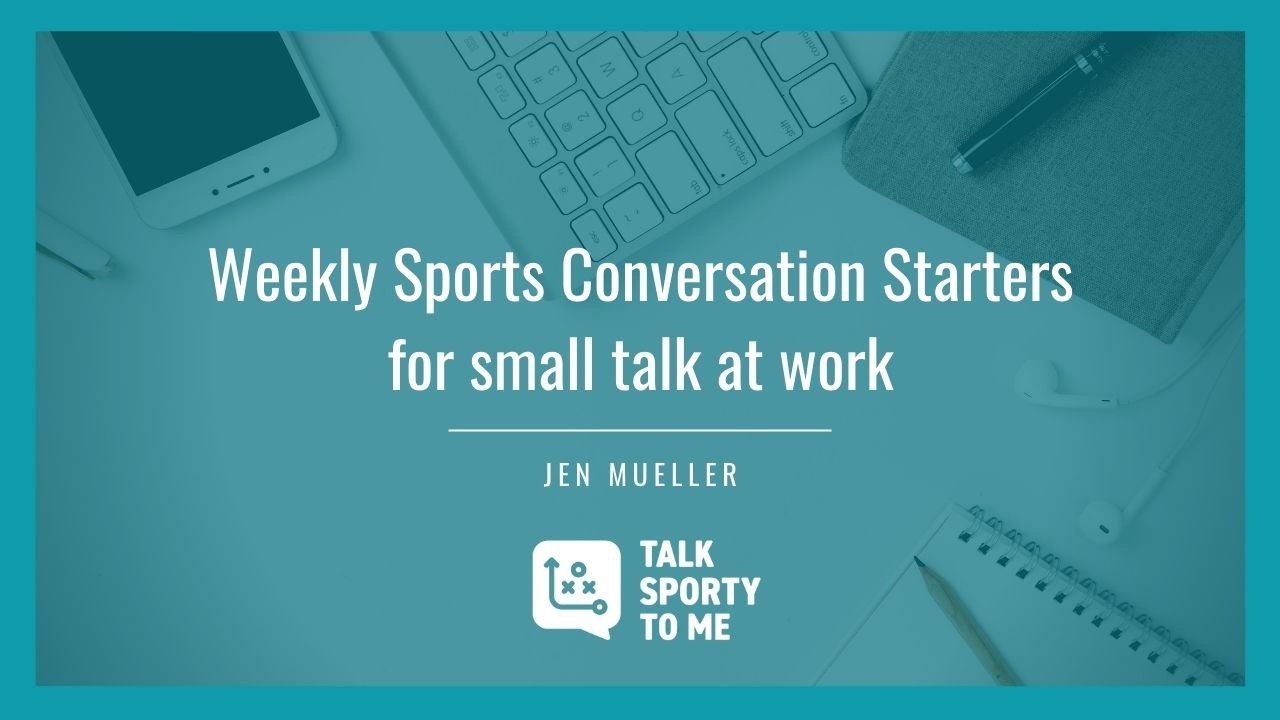
Everyone could use a good conversation starter these days because, “Have you gotten your shot?” and “Which shot did you get?” is a terrible way to start a conversation. And asking, “What’s new?” a year into a pandemic where most people haven’t done anything is a non-starter.
You know what works as a conversation starter every single time? Sports.
There are new things to talk about every day and even non-sports fans will give you an answer that can spark a productive and enjoyable exchange. With that in mind, start talking and use these sports topics to get the conversation going.
 action
action
Talking to People In Real Life: Pre-conversation pep talk
Just as sure as you’ll put on real pants again you’ll also talk to people in real life and face-to-face.
Even if you don’t plan to go back into an office surely you’re planning to socialize in person because there are only so many virtual happy hours any of us can take.
When those in-person interactions happen there won’t be an option to turn a camera on or off. You won’t have the benefit of a chat function where you can type a quick “Hello!” to show you’re contributing to the conversation. You’re going to need to show up and start a conversation all on your own.
Which is why it’s a good idea to brush up on the conversation skills you need for those in-person interactions because we’ve been communicating in an entirely different way for more than a year. The thought of striking up a conversation out of the blue and possibly with someone you don’t know can be overwhelming right now. Even extroverts can get stressed out, trust me I know from personal experience.
I also know the int...
Sports Conversation Starters for Your Workweek
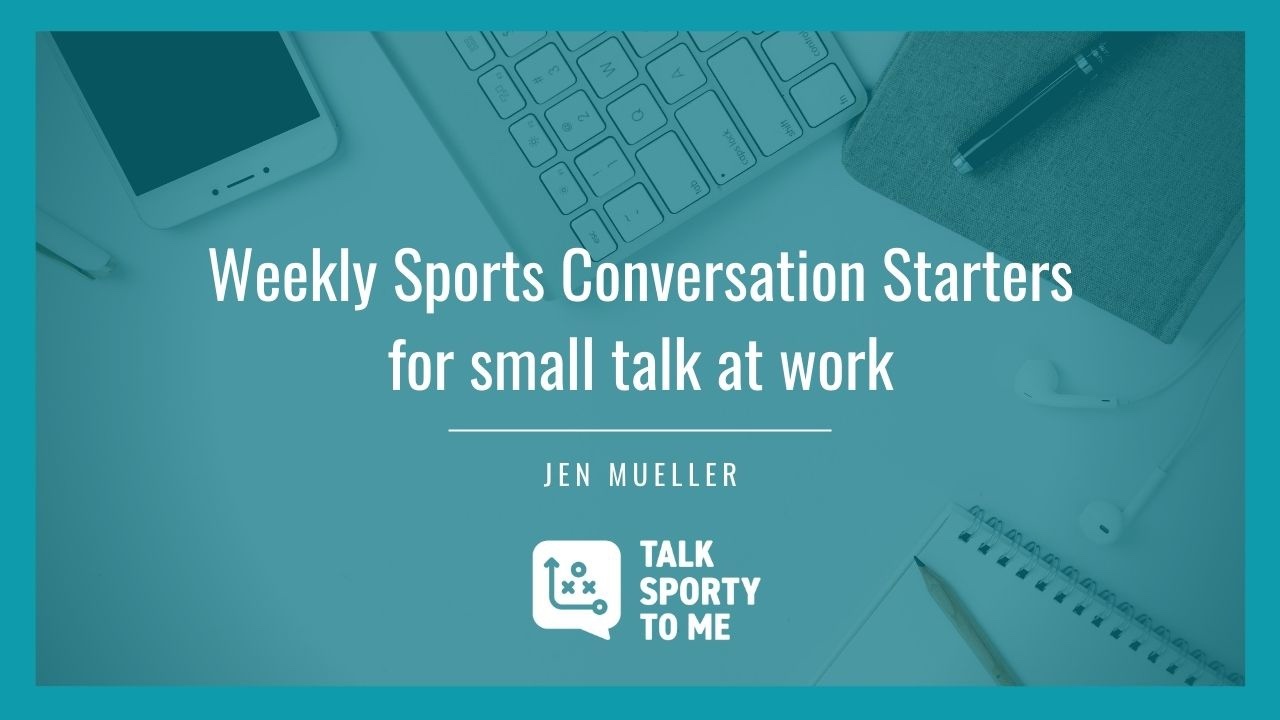
Most of us aren’t looking for additional drama in our lives, but in our conversations… that can be a different story. We don’t mind talking about dramatic stories, finishes, outcomes and people. It makes conversations interesting.
The NCAA Tournament has provided plenty of drama in the last few days. Have you seen the highlights of those finishes? Wow!
They make for great conversation starters this week along with these sports topics.



